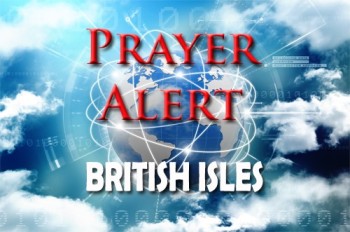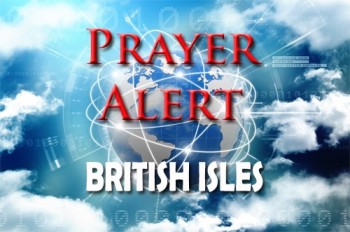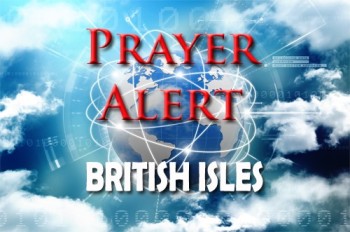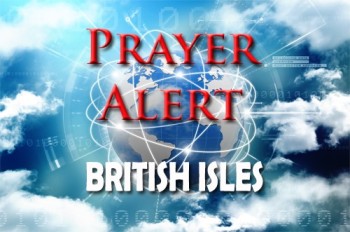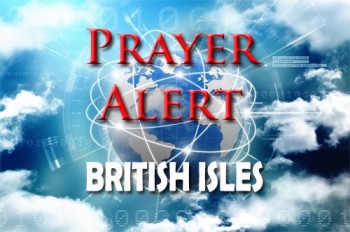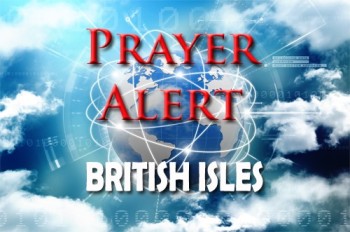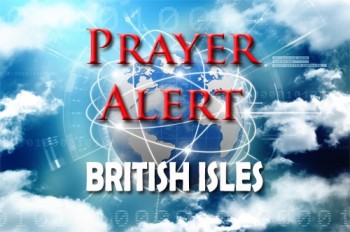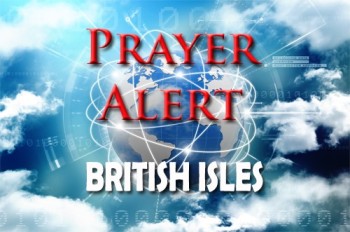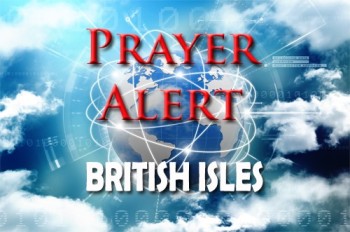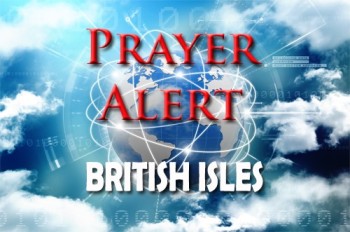Displaying items by tag: United Kingdom
Bishop calls for healthier living with smartphones
Steven Croft, Bishop of Oxford, has urged smartphone-free schools to promote healthier lifestyles for young people. Speaking in the House of Lords, he highlighted efforts by his diocese, which oversees 285 church schools, to educate students on the risks associated with smartphone use. He noted that in a school in his diocese, banning smartphones led to improved behavior, reduced bullying, increased concentration, and better academic performance. He argued that these changes foster healthier communities and higher levels of learning. His comments follow similar initiatives, including a top CofE school adopting 'brick phone only’ policies to encourage a balanced relationship with technology. While there is broad consensus on the benefits of smartphone-free schools, Dr Croft acknowledged the need for further discussions on implementing such measures across the board. The debate reflects growing concerns about the impact of smart devices on young people's well-being and development.
A ‘Black Friday’ as assisted suicide bill is passed
The Terminally Ill Adults (End of Life) Bill passed its second reading in Parliament, with 330 votes in favour and 275 against. Described as a 'Black Friday’, this decision represents a grave shift in Britain’s stance on the sanctity of life, prioritising personal autonomy over protection for the vulnerable. Critics argue the bill endangers the disabled, terminally ill, and impoverished, who may face coercion or feel societal pressure to end their lives. CARE and other opponents emphasise the risks of this legislation. They point to evidence from countries like Canada, where economically disadvantaged individuals are disproportionately affected by assisted suicide laws. While proponents see the bill as progress, opponents like Danny Kruger MP warn that it undermines human value by equating worth with utility. The bill will now move to committee stages, with further debates in the House of Lords. Despite this setback, Christians are called to pray, advocate for the vulnerable, and trust in God’s sovereignty over life and death. See
Starmer pledges 13,000 more police with vows on NHS and schools
Keir Starmer has announced a bold 'Plan for Change’, prioritising increased neighbourhood safety, improved NHS services, education reforms, and economic growth. Central to this vision is the pledge to recruit 13,000 additional police officers, police community support officers, and special constables across England and Wales. Starmer emphasised the importance of visible, community-based policing to restore trust and reduce fear. The plan also addresses NHS waiting lists, aiming to improve access to healthcare. Education reforms focus on early childhood development, ensuring children start school prepared to learn. Additionally, Starmer highlighted a commitment to clean energy, aiming to make Britain a green energy superpower by 2030. Addressing broader issues, Starmer pledged improvements in living standards, housing development, and stricter immigration controls. He criticised past governments for 'sticking plaster' politics, vowing lasting change through strategic, measurable goals.
Business confidence sinks after tax-raising budget
UK business confidence has fallen to its lowest level since the early days of the Covid pandemic, according to the Institute of Directors (IoD). November’s economic confidence index dropped to -65, the lowest since April 2020’s record low of -69. This follows the government's autumn budget, which introduced £40 billion in tax increases, including £25 billion from higher national insurance contributions (NICs) for employers. Business leaders warn these measures will hinder private sector growth, with many firms anticipating reduced investment and workforce cuts. UK hospitality businesses have voiced concerns about closures and reduced investment due to the NIC hikes. IoD chief economist Anna Leach criticised the budget for undermining economic foundations and damaging businesses’ ability to grow. Chancellor Rachel Reeves defended the budget as necessary for stabilising public finances. The IoD hopes upcoming announcements on industrial strategy, infrastructure, and tax reform will boost economic prospects. See
World entering a new nuclear age, head of armed forces warns
Admiral Sir Tony Radakin, Chief of Defence Staff, has warned of a new, more complex nuclear age. He highlighted the growing threats posed by nuclear proliferation and the erosion of global agreements controlling their use. He cited Russia's provocative actions, including simulated nuclear attacks on NATO countries, as well as China's expanding nuclear arsenal, Iran's nuclear ambitions, and North Korea's advancing ballistic missile program. Radakin described the 'third nuclear age' as marked by multiple, concurrent threats and the absence of robust security frameworks. This contrasts with the Cold War's defined blocs and subsequent disarmament efforts. He emphasised the critical role of the UK’s nuclear deterrent, particularly its continuous-at-sea submarines, in influencing Russia's behavior. While stating that a direct Russian attack on the UK or NATO remains unlikely due to effective deterrence, Radakin urged vigilance and strengthened defense strategies. He called for national resolve in confronting these escalating security challenges. See
UK buys 5m doses of bird flu vaccine
The Government has secured over five million doses of a bird flu vaccine to prepare for potential human transmission of the H5N1 virus, despite no current evidence of such spread. The vaccine is part of broader efforts to enhance the nation's pandemic preparedness. Bird flu remains primarily a threat to birds, but certain strains, including H5N1, have been linked to human infections. Symptoms range from flu-like illnesses to more severe complications like conjunctivitis. The vaccine will only be deployed if human transmission begins. Public health minister Andrew Gwynne stressed the government’s commitment to safeguarding public health through proactive measures. Health agencies are actively monitoring avian influenza in humans, birds, and animals, contributing to global understanding and response strategies against the virus.
Calls for a general election challenge Government’s leadership
Just five months after Labour’s election victory, a petition demanding a fresh general election has reached nearly 2.8 million signatures, triggering a parliamentary debate set for 6 January. The petition accuses the Labour government of breaking campaign promises. High-profile figures like actor Michael Caine and entrepreneur Elon Musk have fuelled the petition’s momentum. Despite claims of possible non-UK signatories, the House of Commons is confident the majority are legitimate British citizens or residents. Keir Starmer dismissed calls for a new election, attributing dissatisfaction to tough budget decisions, such as inheritance tax changes, loss of winter fuel payments for pensioners, and new VAT on private school fees. He emphasised his focus on governance, stating, 'That isn’t how our system works’. The debate will test the Government’s response to public discontent and its ability to regain voter trust amidst growing pressure.
Gun crime in London rises by 30%
Gun crime in London has surged by nearly 30%, impacting areas once considered safe. The recent shooting of an eight-year-old girl in Ladbroke Grove highlights the escalating violence linked to gang rivalries. Community leaders attribute the rise to recently released prisoners returning to their communities with unresolved conflicts. High-crime areas are seeing younger individuals recruited into gang activities, including carrying weapons. The surge in gun-related incidents has placed immense pressure on Scotland Yard, which faces severe budget cuts of £450 million, potentially reducing the police force by two thousand officers. Mayor Sadiq Khan emphasises efforts like the Violence Reduction Unit (VRU), which has funded 350,000 opportunities for youth and contributed to a reduction in homicides and stabbings. Initiatives such as youth worker programmes in hospitals and police custody aim to prevent reoffending and exploitation. Organisations like The Children’s Society are working to protect vulnerable children through education, awareness campaigns, and collaborative efforts to tackle the root causes of violence, offering hope for a safer future.
Mystery drones over US air bases in England
Sixty British troops have joined the United States Air Force (USAF) to investigate a series of unidentified drones spotted flying over three bases in Suffolk and Norfolk. The incidents have raised concerns about security, although the drones have not been deemed hostile. The bases play crucial roles in US military operations. USAF has confirmed multiple sightings during nighttime hours, but no source or intent has been identified. The Ministry of Defence emphasised robust security measures at all defence sites, and both British and US authorities are closely monitoring the situation to ensure the safety of personnel and infrastructure. Efforts to determine the origin and purpose of the drones continue.
MPs support new bill aiming for phased smoking ban
MPs have overwhelmingly backed a new Tobacco and Vapes bill aimed at phasing out smoking by making it illegal for anyone aged fifteen or younger today to ever purchase cigarettes. Originally proposed by the Conservatives, the bill was advanced by Labour and passed its first Commons vote with a majority of 415 to 47. It also seeks to curb youth vaping through advertising bans, packaging restrictions, and flavour limitations. Health secretary Wes Streeting described it as a landmark public health intervention aimed at preventing addiction, reducing NHS pressures, and fostering a healthier population. Despite broad support, some MPs, including Kemi Badenoch and Suella Braverman, opposed the bill, citing concerns over civil liberties. Others questioned the practicality of age-based restrictions and the potential expansion of outdoor smoking bans. Proponents argue the measures address tobacco's uniquely harmful and addictive nature, aiming to create a smoke-free generation and protect youth from nicotine addiction. Further scrutiny in Parliament is expected before the bill becomes law.
